The "Honorary Network Membership" values the contributions of a convenor in the context of a network's history. Being an honorary network member has no duties, but includes the possibility of paying the reduced ECER fee available to members of EERA member associations. Honorary Network Membership is granted by Council based on suggestions put forward by EERA networks.
Awarded 2025
Ken Jones | 01. Professional Learning and Development
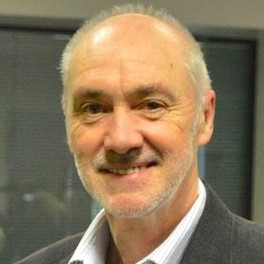
Ken Jones was named an honorary member of Network 1 Professional Learning and Development at its meeting at the ECER 2024 conference in Nicosia after stepping down as link convenor, a position he held for two consecutive terms. Ken has been a prominent figure in EERA Network 1 throughout its existence. He has convened and chaired numerous symposia in the network on teacher professional learning and development and has been an active editor and adviser of books and articles that have resulted from these symposia. He has been a member of the team of convenors of the network since 2015, and link convenor from 2016 to 2024.
Monica Rosén | 09. Assessment, Evaluation, Testing and Measurement (deceased)
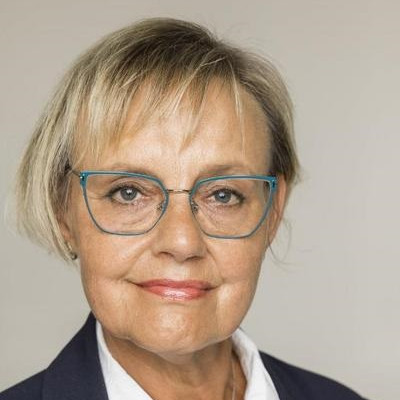
Monica Rosen passed away suddenly on 29 August whilst attending the ECER 2024 conference. She was a Professor at the University of Gothenburg and had been the Link Convenor of Network 9 since 2020. She had further served as co-convenor before that (2011-2020). Her contribution to EERA and the network was considerable. She served at the conferences as chair, discussant, and reviewer for nearly two decades, and collaborated with colleagues in the network. A prolific scholar, many will remember her sharp intellect and wit, probing questions, warm professional and personal interest in colleagues, and her passion for emerging scholars’ development.
Fiona Chambers | 18. Research in Sport Pedagogy
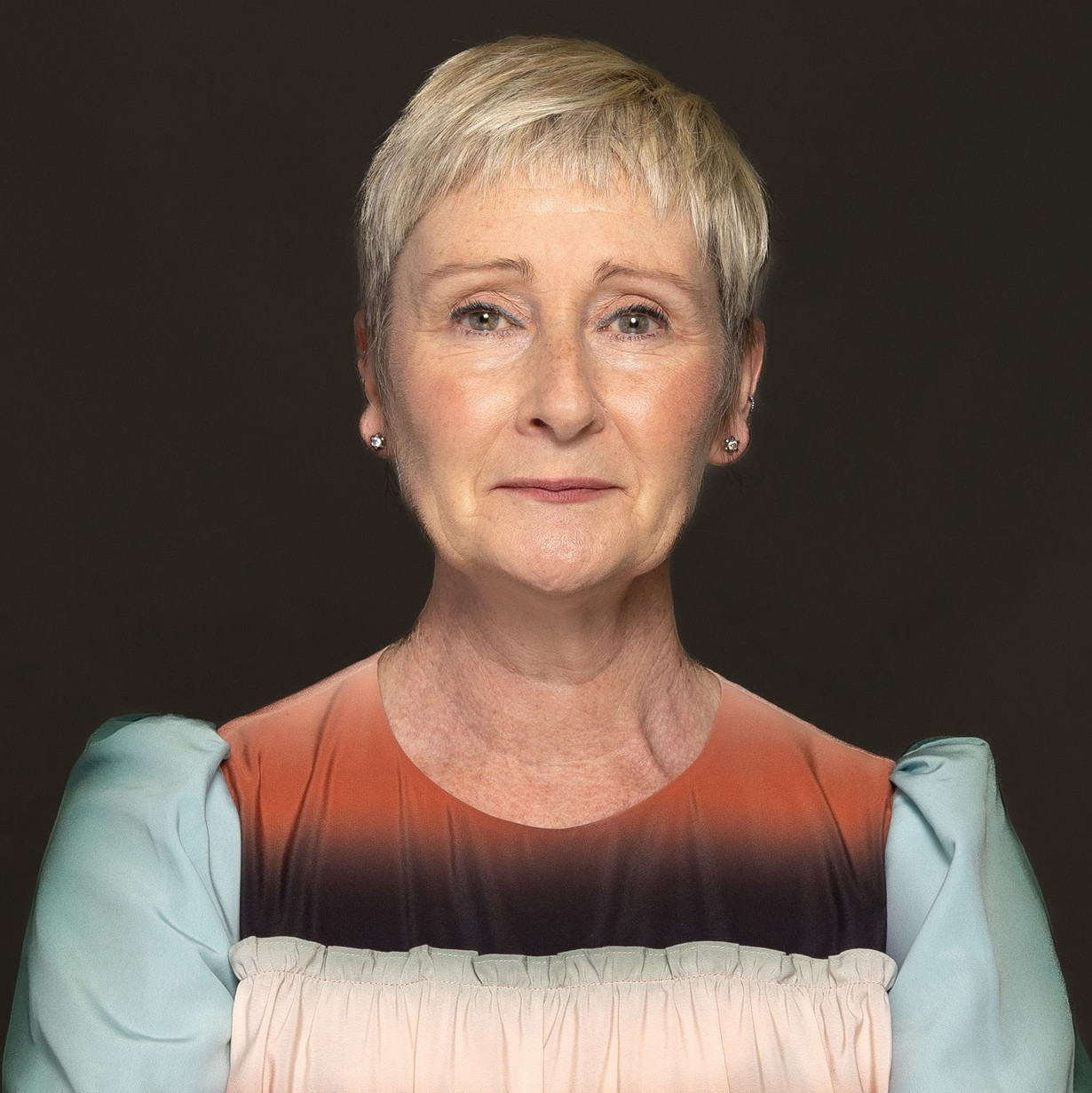
Dr Fiona Chambers is a Senior Lecturer in Education (Physical Education and Sport Pedagogy) at University College Cork, Ireland. She was a co-founder of the ECER NW18 Research in Sport Pedagogy in 2011, taking over as Link Convenor in 2012 at ECER Cadiz, until 2018. She is an award-winning, globally renowned academic leader and founder in sport, innovation and education and a two-time TEDx Speaker. She is currently serving as both the elected President of AIESEP (the International Association for Research in Physical Education in Higher Education) and the elected Vice President of CEREPS (The European Council for Research in Physical Education and School Sport).She is a member of the Advisory Council for the UNESCO Global Observatory for Gender Equality in Sport and a UNESCO CIGEPS Observer (Intergovernmental Committee for Physical Education and Sport). She was the winner of the 2023 Irish Sport Industry Awards inaugural ‘Women in Business in Sport’ award (sponsored by KPMG) and was named as one of the 50 women of influence in Irish Sport in both 2023 and 2024 by Sport for Business
Awarded 2023
Dolf van Veen | 05. Children and Youth at Risk and Urban Education
Dolf van Veen is Director of the Netherlands Centre for Education and Youth Care (NCOJ and has held a number of important roles in universities and the government in the Netherlands. He has been involved in EERA for many years, most notably in establishing the Children and Youth at Risk and Urban Education network, for which he was link convenor for many years. He remains committed to supporting emerging and experienced researchers and to the work of EERA.
Helena Ribeiro de Castro | 17. Histories of Education
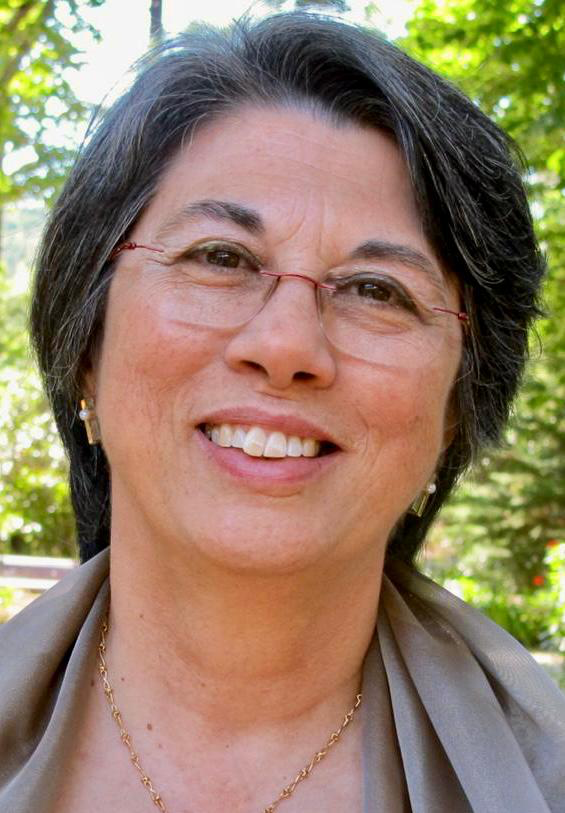
Helena Ribeiro de Castro, retired since September 2022, was a Full Professor at the Instituto Piaget, Campus Universitário de Almada where she coordinated a Bachelor in Primary Education and Master in Pre-School and Primary Education. She holds a Ph.D. in Education from the University of Lisbon and has published widely on issues concerning pedagogy and educational history approached from the perspectives of the visual and the body, among many others. In her twenty-plus years of participation in Network 17’s activities, she coordinated an EERA-funded project and publication, facilitated an EERA-supported Doctoral Summer School, and helped renew the history of education internationally.
Dennis Beach | 19. Ethnography
Professor Dennis Beach’s outstanding body of academic work has shaped the establishment and growth of ethnography across Europe. On a European scale, Dennis has encouraged and promoted the development of ethnographic research in education, supporting ethnographic initiatives of young researchers, and highlighting the transformative potential of ethnography. In addition to his numerous books and journal articles, he has been on the editorial board of the journal Ethnography and Education since it was launched in 2006 and became editor in chief in 2013. In EERA, his ethnographic engagement has been equally prolific: Dennis is one of the founding convenors of network 19 and has significantly shaped the profile and course of the network for more than 23 years. We are profoundly thankful for Dennis’ engagement, and hope that he will remain active in the ethnographic community for a long time.
Awarded 2022
Julie Allan | 04. Inclusive Education
Professor Julie Allan is an eminent international scholar in the field of inclusive education. She has been a member of EERA for more than twenty years. During her appointment as a link convenor of Network 04, she worked on strengthening the network activity at multiple levels, especially by fostering scientific cooperation between the network members and promoting collaboration with other EERA networks on joint initiatives.
Yngve Troye Nordkvelle | 06. Open Learning: Media, Environments and Cultures
Yngve Troye Nordkvelle is since 2004 a professor of education at the Inland Norway University of Applied Sciences (former Lillehammer University College, Norway), and he is now currently Head of Department for Teaching and Learning. He has been an essential and vital member of Network 6: Open Learning: Media, Environments and Cultures, and he has substantially contributed to development by shaping the scope and focus of the network. He has been attending nearly all ECER conferences since 1996, and he has been the network’s Co-Convenor from 2003 to 2007 and Link Convenor from 2007 to 2010.
Heidi Flavian | 11. Educational Improvement and Quality Assurance
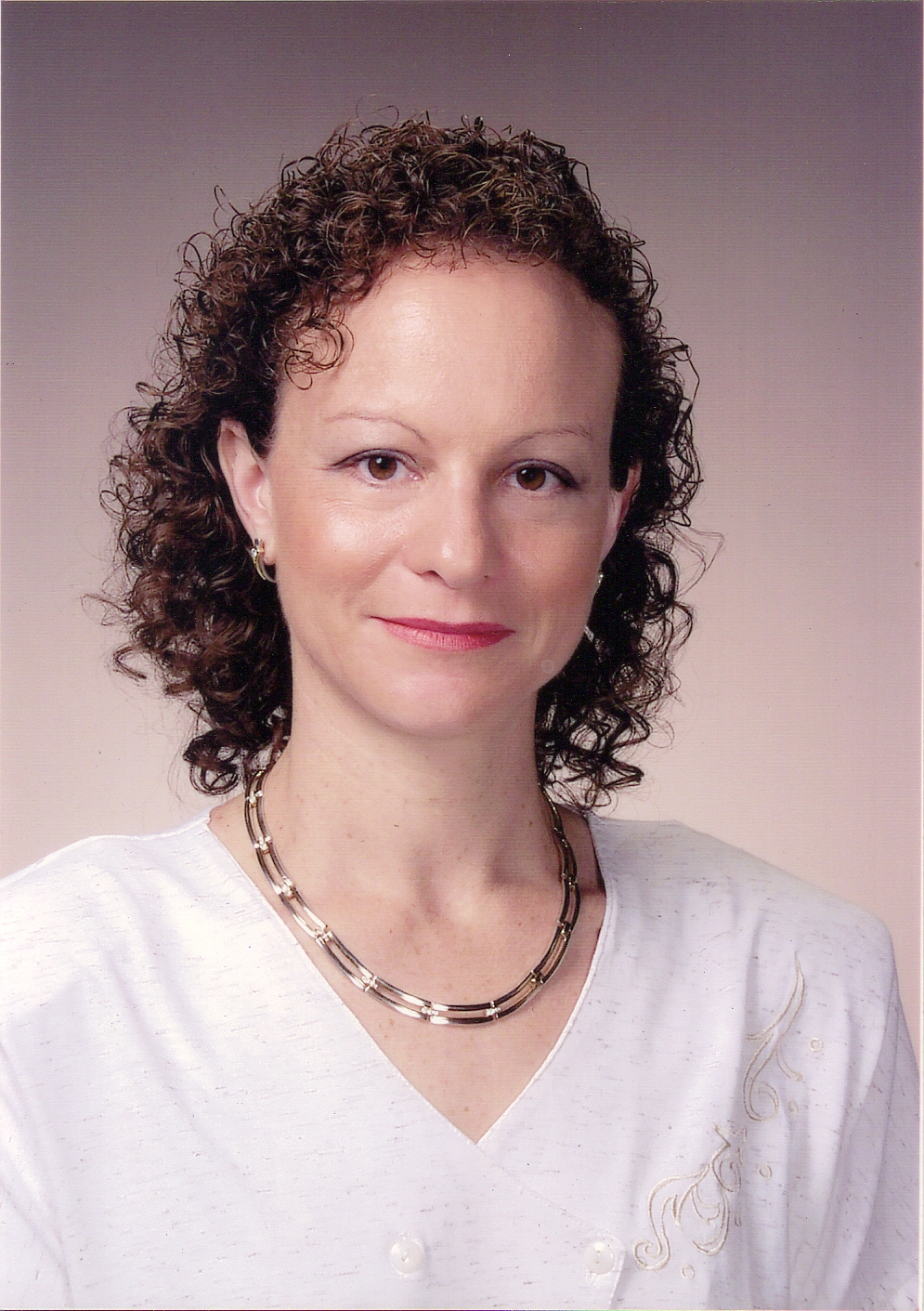
Dr. Heidi Flavian, a senior lecturer, researcher, the Head of Special Education department at Achva Academic College in Israel, serves a senior lecturer in the International Team in the Feuerstein Institute since 2002, was the Link Convenor of EERA NW11 during 2016-2021. Recently, her books Mediation and Thinking Development in Schools (2019), and the book she edited From Pedagogy to Quality Assurance in Education comprising NW11 contributions (2020) were published. She is also an Editor-in-Chief of the Journal of Quality Assurance in Education. Her main areas of research are teacher-education, mediation, thinking processes, teaching students with special needs.
Awarded 2020
Liz Todd | 04. Inclusive Education
Professor Liz Todd is a distinguished international scholar whose work in in the relationships between young people, schools and their communities and on what is needed for inclusive education to become a reality. Passionate about ECER, she has given much time to the co-ordination and development of ECER’s network 4, inclusive education, including increased international collaboration through encouraging use of symposia; improved links with other networks; and the embedding in the culture of network 4 an inclusive social event. She has attended virtually every ECER for the last 20 years.
Catherine Burke | 17. Histories of Education
Catherine Burke is Emerita Professor of History of Education. As a former President of the History of Education Society UK and long-time editor of the Sources and Interpretations section of the History of Education journal,she is currently, with Professor Jane Martin of the University of Birmingham, joint Editor of the Routledge Progressive Education Series. Professor Burke has published widely on the history of school architecture and participation of children in school design, and on contemporary school architecture. Her book, A Life in Education and Architecture: Mary Beaumont Medd 1907-2005 (Ashgate, 2013), won the 2014 History of Education Society book prize.
Kathleen Armour | 18. Research in Sport Pedagogy
Prof. Kathleen Armour, is Pro-Vice-Chancellor (Education) at the University of Birmingham, UK. She was a co-founder of NW18 (Research in Sport Pedagogy) and the initial link convenor, undertaking this role until 2013. She is a leading name in the field of Physical Education and Sport Pedagogy and has made a significant contribution to this area of study. Throughout her career, she has sought to examine issues of relevance to teaching and learning, with a focus on continuing professional development for teachers and coaches. Prof. Armour’s work has been underpinned by concerted efforts to bridge gaps between theory, research and practice.
Helen Wildy | 26. Educational Leadership
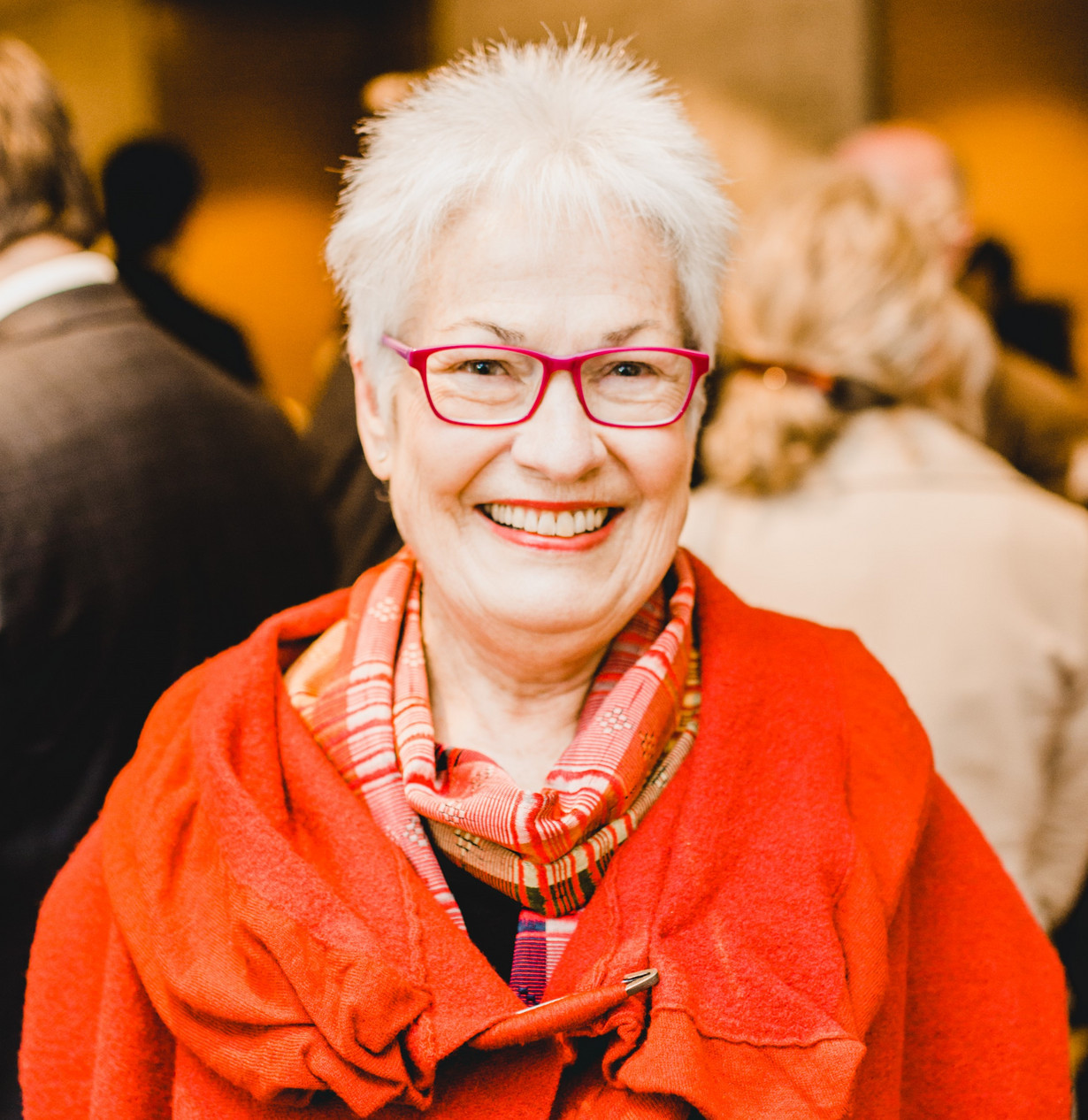
Emeritus Professor Helen Wildy retired recently after a decade as Dean of the Faculty of Education and Head of the Graduate School of Education, The University of Western Australia. Her participation in ECER began at the Lisbon conference in early 2000. She has been an active member of Network 26 and co-convener ever since.
The growth of the Educational Leadership Network reflects its significance as an academic field, both for researchers and for practice. Helen’s own research activity in leadership preparation and support for school principals, especially for novice principals of small schools, has made a contribution to this endeavor.
Awarded 2019
Meinert Meyer | 27. Didactics - Learning and Teaching (deceased)
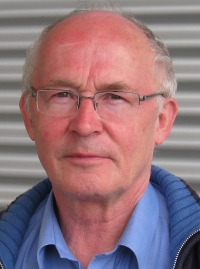
Meinert A. Meyer (deceased) was one of the founders of network 27. He was a reviewer, a convenor and a link convenor of the network. Meinert constantly promoted and enriched the international and interdisciplinary discourse in the scientific community. He initiated and conducted international research projects, and he was one of the active members of network 27 to cooperate and support educational research on a global level, within WERA. With regard to publications, Meinert initiated and supported the spread of research of the members of the network.
Helene Ärlestig | 26. Educational Leadership
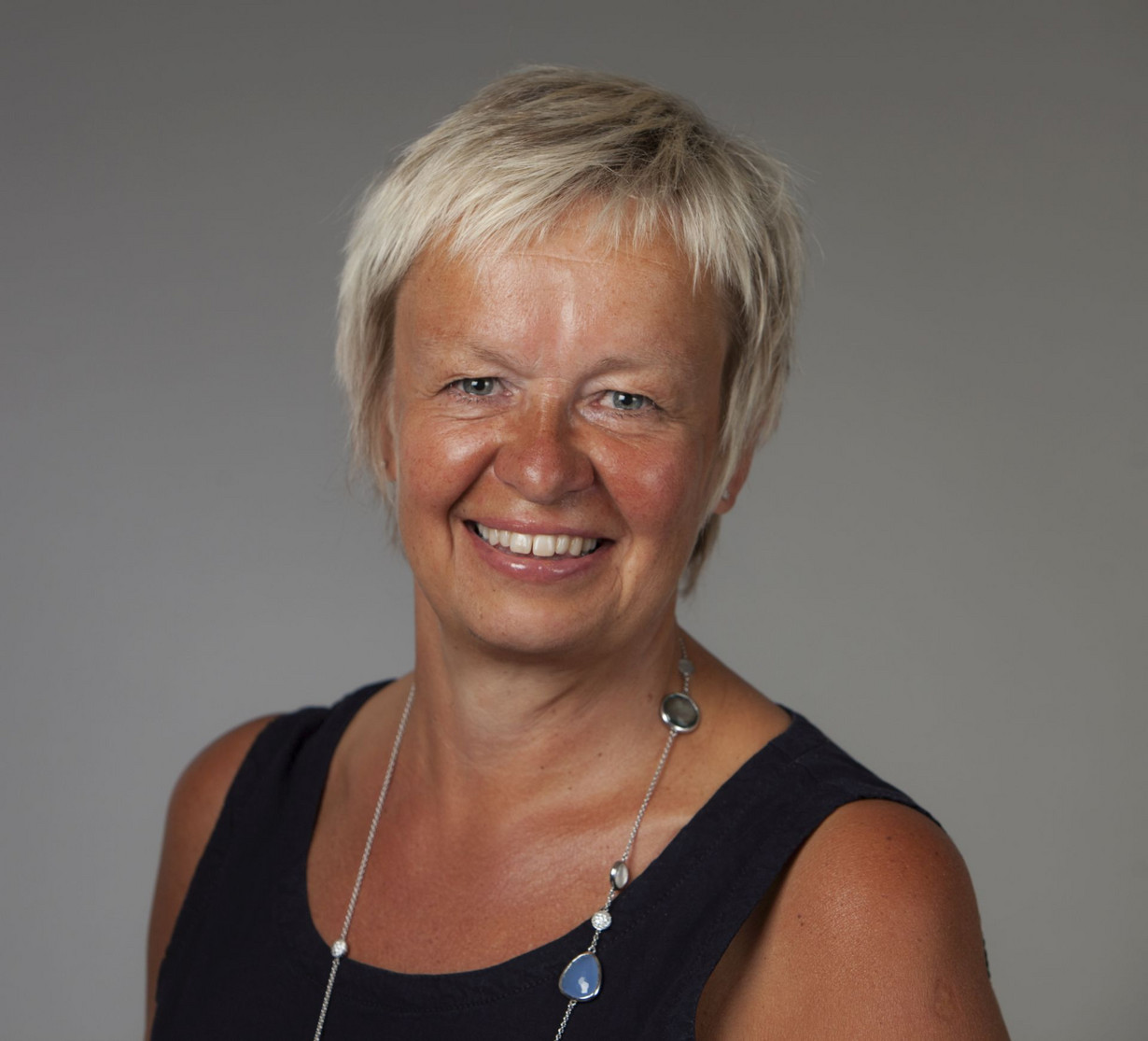
Dr. Ärlestig is an associate professor in education at the Centre for Principal Development, Umeå University. Her research interest concerns organizational communication, pedagogical leadership and the principal’s role and work. She is involved in several international comparative studies about principals’ leadership, for example the International Successful School Principal Project (ISSPP) and International School Leadership Development Network (ISLDN). She has a background as a principal in compulsory schools.
Dr. Ärlestig was the link convener for network 26 Educational Leadership in the European Educational Research Association EERA from 2012 until 2016. Under her care, the network grew considerably in terms of size, scope and connectivity.
Bob Jeffrey | 19. Ethnography
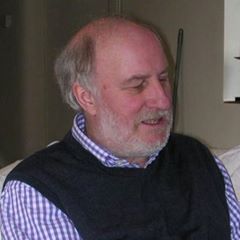
Beginning in 1999, Bob Jeffrey contributed to create, develop and consolidate Network 19. Ethnography, together with other founders, Professor/s Geoff Troman and Dennis Beach. He actively participated in all EERA conferences up to 2012 by reviewing, organising sessions and symposia and served as link convenor for many years.
Bob made a solid contribution to the field of education, namely by doing research on creative teaching, learners and their opportunities for creative learning as well a focus on Performativity and Testing in Primary Schools
He also supported several opportunities for the establishment of a European based network of worldwide community of ethnographers in education by linking ECER and Network 19 with other events that he co organised, such as the Oxford Ethnography and Education Conference and the Rethinking Ethnography Conference.
Bob Jeffrey, along with Professor/s Troman, Beach and Walford began the Journal Ethnography and Education in 2006 serving as editor from 2009 until 2013.
He was, and still is, responsible for motivating a new generation of ethnographers in education and promoting and welcoming emerging researchers' participation. Our community highly appreciates his professional activities, enthusiasm and willingness to engage different generations of researchers. He is still involved in activities of Network 19, although more sporadically, since retirement from The Open University in 2011 after working closely with his mentor Professor Peter Woods who recruited him into academia.
Birgit Pepin | 24. Mathematics Education Research
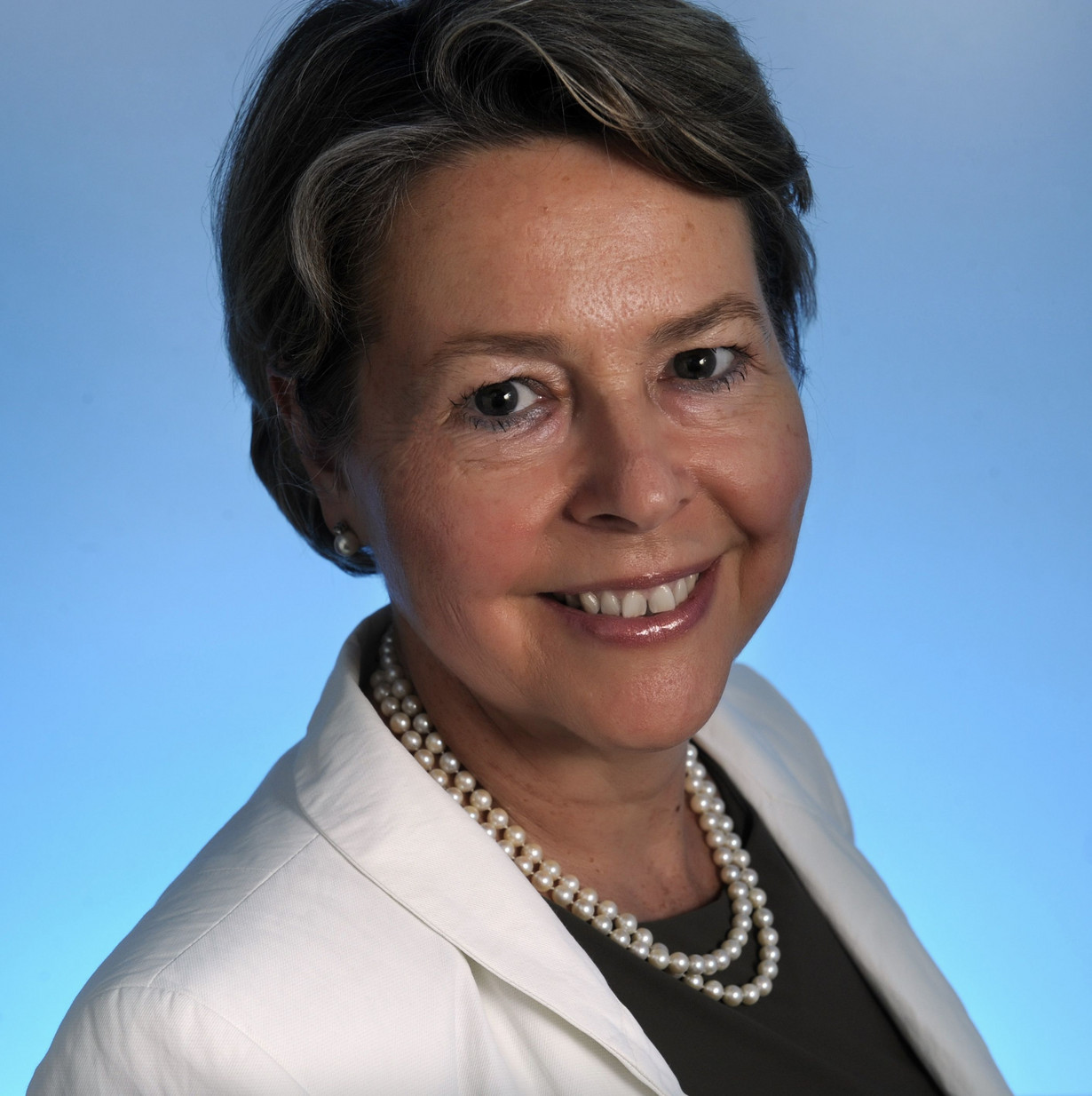
Prof. Birgit Pepin has a large trajectory as an excellent mathematics education researcher. Her contributions cover a number of areas, including teacher professional development, research and innovation in the field of mathematics curriculum, and mathematics teaching and learning. She was the founder of NW 24 Mathematics Education Research in 2008. Her mastery has opened opportunities for young researchers in mathematics education research. Her work contributed significantly to the development of the NW 24, creating a space in ECER for mathematics educators and researchers to come together and discuss scientific evidence to improve our knowledge about mathematics teaching and learning.
Ton Mooij | 16. ICT in Education and Training
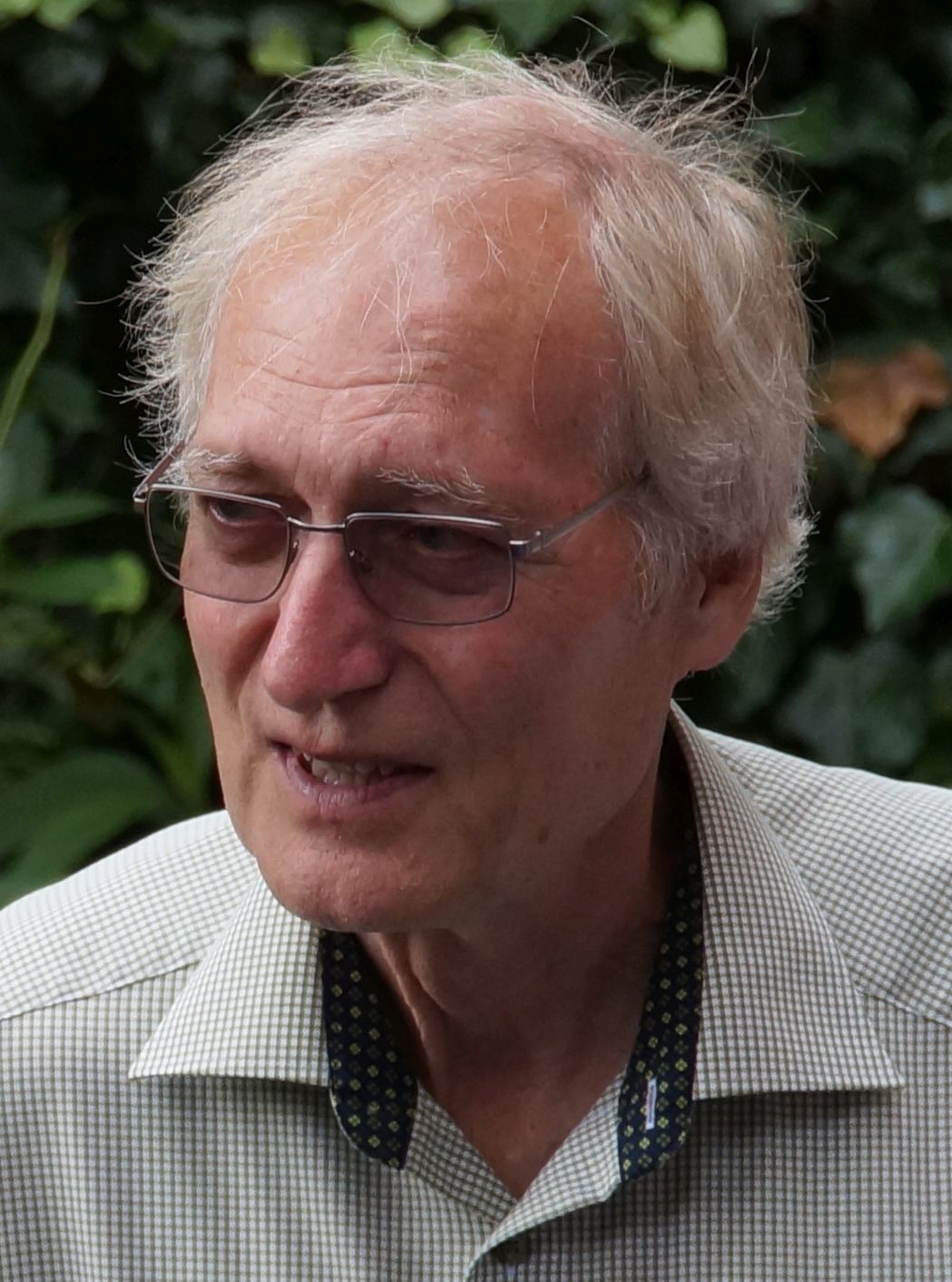
Em. prof. dr. Ton Mooij is one of the founders of the network ‘ICT in Education and Training’ which was established in 1997. He was the link convenor from 1997 until 2013. He also participated in the EERA project on ‘European Educational Research Quality Indicators’. He played a very active role in the network, which has evolved into a medium sized network with a substantial number of regular participants. He organized many symposia on ICT in education, within the network as well as in cooperation with other networks, gave numerous presentations during ECER conferences, and contributed as a discussant to a large number of symposia.
More information about the CV and publication list of Ton Mooij can be found at
Joyce Goodman | 17. Histories of Education
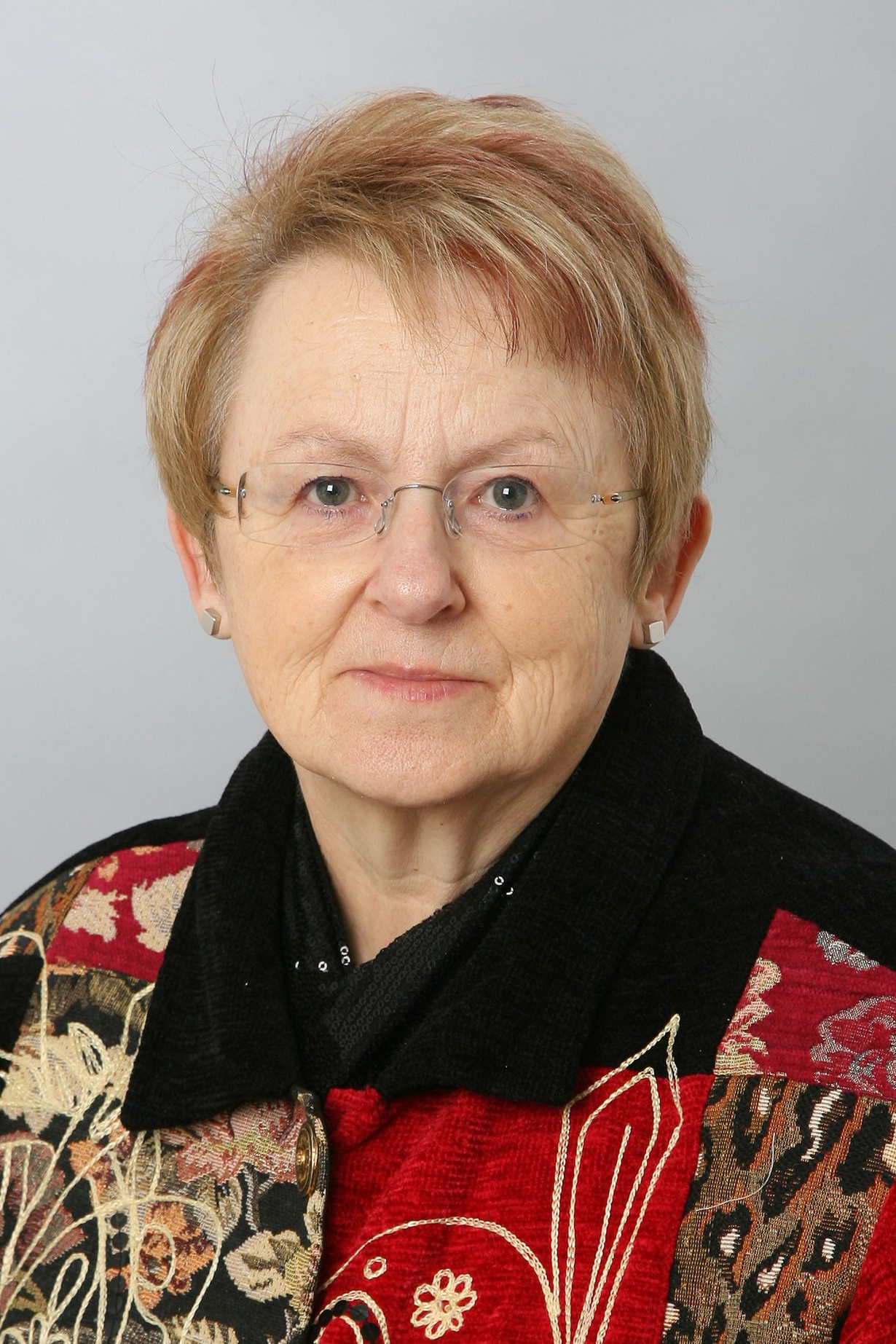
Joyce Goodman is Professor of History of Education. She has filled a range of University roles, including Assistant Vice-Chancellor, Pro-Vice-Chancellor, Dean, and Director of Research and Knowledge Transfer. She is the former editor of History of Education, past president of the History of Education Society UK and former secretary of the International Standing Conference for the History of Education. She has published widely on women and education. Recent books include Women and Education: Major Themes in Education (Routledge 2011, 4 volumes), with Jane Martin, and Girls’ Secondary Education in the Western World (Palgrave 2010/2014), with James Albisetti and Rebecca Rogers.
Awarded 2018
Wilfried Bos | Network 9. Assessment, Evaluation, Testing and Measurement
Wilfried Bos, Dr. phil., is Professor for Educational Research and Quality Assurance at TU Dortmund University. He is Director in the Center for Research on Education and School Development which he has headed as Managing Director from 2005 until 2014.
Wilfried Bos has steered Network 9 as Link Convenor from 2008 until 2017. Under his auspices the network developed considerably in size and structure. He fostered network cohesion, European collaboration and interdisciplinary exchange, ensured and nurtured the quality of research and debate, and initiated numerous opportunities for building research capacities at entry and advanced levels in Network 9 and beyond.
Ian Grosvenor | Network 17. Histories of Education
Ian Grosvenor is Professor and Head of the Department of Education and Social Justice at the School of Education, as well as Director of the Voices of War & Peace Centre at the University of Birmingham. He is the author of numerous articles and books on racism, education and identity, the visual and the material culture of education, and the history of urban education. He is Managing Editor of the journal Paedagogica Historica and a Fellow at the Royal Historical Society. He was Secretary General of EERA and a convenor of NW17. The community of historians of education highly appreciate his professional activities, which benefit of the discipline, as well as his creativity, open mind, and enthusiasm.
Frank Simon | Network 17. Histories of Education
Frank Simon is Professor emeritus at the University of Ghent, Belgium and one of the most highly respected academics and experts in the field of the history of education. His current academic interests are devoted to the ‘New School’ movement, especially to the life of Ovide Decroly. Frank was among the creators of the NW17 at ECER, and he has edited several international journals and chaired international professional associations. Frank willingly shares his vast knowledge, supporting colleagues and educating young historians of education. As a respected scholar among international academics, he has made an invaluable contribution to the promotion of the history of education.
Samuel Gento | Network 11. Educational Improvement and Quality Assurance
Prof. Samuel Gento is an educator who has contributed to educational systems around the world throughout his professional life. He was a Primary School Teacher, a Secondary School Teacher, an Inspector of Education, and continued on to university where he has been Associate Professor, Tenure Professor, Full Professor and Emeritus Professor.
He is Doctor Honor Cause by the University of Latvia, founder and Honorary President of the ‘European Association of Leadership and Quality of Education’.
Along with his personal academic promotion, he focused on a variety of studies in education and pedagogy, and presented them at a various conferences, many at ECER, and published a wide variety of papers. He also supports new researchers and motivates them to participate in conferences.
Prof. Samuel Gento acted as link convenor for 9 years (from 2007 to 2015) and is still today active member of Nework 11 on ‘Educational Improvement and Quality Assurance’.
Jan van den Akker | Network 3. Curriculum Innovation
Network 3: Curriculum innovation gratefully provides the honorary network membership to Jan van den Akker. Jan is founder of the Curriculum Innovation network, which was established in 1994, and has served Network 3 in many ways for many years. Thanks to Jan’s inspiring and generous personality and proactive style of working, network 3 has gradually grown to become a robust network.
Johanna Lahja Lasonen | Network 2. Vocational Education and Training (VETNET)
Johanna Lasonen has contributed to the founding process of VETNET. Since the beginning she worked as an active member in the VETNET Board and as a permanent reviewer of VETNET proposals since ECER 1997. She was the first VETNET programme chair for ECER 1999 in Lahti. She has been the pioneer in developing contacts between VETNET and UNESCO. During her work as a coordinator of EU-funded projects she has involved them in ECER symposia. Recently, she has supported the founding process of the International Journal for Research in Vocational Education and Training (IJRVET) and she is an active member of the Editorial Board of the IJRVET.
Awarded 2017
Linda Hargreaves and Rune Kvalsund | Network 14. Communities, Families, and Schooling in Educational Research
For the past 20 years, Dr Linda Hargreaves, Reader Emerita in Classroom Learning and Pedagogy, Cambridge University Faculty of Education, and Rune Kvalsund, Professor of Education, Faculty of Social Science and History, Volda University College, have devoted themselves to starting, developing and consolidating NW14, a network of scholars in Europe committed to rural schools, communities, families and those populations out of the mainstream. As founders of NW14, they have both been involved in the network as lead convenors, co-convenors, reviewers and presenters in all the conferences (with the exception of just one each) since 1995 and 1996, respectively.
Their contributions to NW14 have been essential all these years for the development and consolidation of the network. They have worked tirelessly to engage researchers from diverse countries and backgrounds making NW14 a multidisciplinary group of scholars. In particular, we would like to highlight their deep commitment to involving and collaborating with colleagues from different geographical areas in order to have a more dynamic and vibrant NW14, one that could reach more people (which, as it turned out, happened). They have engaged colleagues in the network from all the European spectrum (Cyprus, Czech Republic, Finland, Italy, Norway, Poland, Portugal, Serbia, Spain, Switzerland, and UK).
Their work has been crucial to increasing the number of papers NW14 has received over the years as well as the outputs obtained in terms of publications and joint projects with other colleagues within the NW14, and they continue in these efforts to this day.
Building capacity within the NW14 is another crucial aspect for which Linda and Rune have always worked. They have been extremely supportive of the young scholars and emerging researchers, such as Dr Joana Lucio and Dr Rocío García-Carrión, who owe an important part of their learning and achievements in academia to them both. As young scholars, both have been always supported by Linda and Rune to take the responsibility of being Link Convenor counting always on their help for the betterment of the NW14.
Linda and Rune have given such an invaluable contribution to the NW14 along with their outstanding scientific careers - NW14 has benefitted enormously from having them with such great commitment for 20 years. Their contributions have been significant in their countries and relevant for many educational researchers in Europe. Linda Hargreaves is one of the leading scholars in the study of classroom interaction, groupwork, transfer, educational provision in rural schools and teacher status, using classroom observation where appropriate. Rune Kvalsund has led the longitudinal and cross-sectional research in rural schools and their communities in Norway, focusing on different arenas of informal social learning in schools and children’s home environment. He has also done research on life course transitions of young persons with special educational needs and traced consequences of schooling into their adult life. Both have had their research published in highly respected international journals and their contributions to the research on rural schools have been internationally recognised in several publications and have been essential in advancing knowledge in the field.
Linda and Rune’s contributions have made Network 14 open for voices outside the main-stream of educational policy and research, not the least by arguing for improvements in the quality of research design, for example, through comparative and longitudinal studies, and how basic theoretical choices influence the planning, process, meaning and ethics of research in rural schools and communities. This cross-disciplinary network of researchers has been supporting research themes with schools and communities ‘outside the mainstream’ of education systems over a period of 20 years. The activity of Network 14 has gradually extended internationally.
Martin Lawn | Network 28. Sociologies of Education
Martin Lawn was one of the founders of the Network 28 ‘Sociologies of Education’. He promoted the constitution of the Network and supported its development since the beginning in 2010 by contributing to the elaboration of its foci, helping in the shaping of its agenda, fostering its consolidation, and by structuring its governance.
In particular, his work has been fundamental in anchoring the network on the European social dimension of education and in opening a new space of sociological imagination and research in the European Educational Research Association. His publications on Europeanization of education are key references for sociological investigation. He is encouraging the interdisciplinary studies of the European space of educationthrough a book series he is co-editing.
Martin Lawn helped establish the Network links with EERJ by favouring the collaboration among the sociological journals and the network activities and in promoting the publication of the best papers of the field coming from the network.
He has been a very active participant at ECER by promoting paper proposals each year, chairing sessions and symposia, organising roundtables and workshops, and reviewing for several networks. He served as Secretary General of EERA and Editor of European Educational Research Journal. He took part as well in the constitution of the Network ‘Histories of Education’ and the Network 23 ‘Policies Studies and Politics of Education’. Finally, he supported the collaboration between the networks and the training of the next generation of researchers in the field of education in Europe and elsewhere.
Jenny Ozga | Network 23. Policy Studies and Politics of Education
Jenny Ozga, professor emeritus of Oxford University, was one of the founders of network 23, Policy Studies and Politics of Education. She was one of the researchers proposing the network in 2001 and after the network had been approved she served for the first years as one of the three network coordinators.
Jenny Ozga’s main research area is education policy in international comparative contexts. She has focused especially on new forms of governance through the use of new policy technologies such as quantitative data. In pursuing this line of research she has collaborated with colleagues in the UK and Europe to develop theory and empirical investigation. The results of this research have been published in recognized books and articles, but much of it has also been presented and discussed in paper sessions and symposia at ECER conferences. It also informed the keynote on ‘Governing Knowledge: Research Steering and Research Quality’ that she gave at the 2007 ECER in Ghent.
Jenny Ozga was Professor of Sociology of Education in the Oxford University Department of Education from 2010-2015. Before that she was Director of the Centre for Educational Sociology at the University of Edinburgh, and she has earlier worked in the other universities. She is a Fellow of the British Academy and holds an honorary doctorate from Turku University, Finland.
Jenny Ozga has continued to have a strong presence in network 23 and has also contributed to network 28, Sociologies of education. In research and discussion she eminently represents the qualities of educational research based on strong theoretical and empirical foundations as well as on critical questioning of dominant assumptions and practices.
David Bridges | Network 13. Philosophy of Education
Professor David Bridges: MA (Oxon) MA PhD (London); Hon.D.Univ (Open University); Emeritus Professor, University of East Anglia; Emeritus Fellow, St Edmund’s and Homerton Colleges Cambridge; Fellow of the Academy of Social Sciences; Overseas Fellow of the Lithuanian Academy of Sciences
David Bridges has been an enthusiastic supporter of EERA since its very early days. It was at a symposium at a joint EERA/BERA conference in Bath in 1995 that the idea of a Philosophy of Education Network for EERA was conceived. David came to the ECER conference the following year in Seville with a proposal for its establishment. As Dieter Lenzen did the same, they joined forces and became the first convenors of Network 13. Dieter almost immediately took on a position as Vice President of the Freie Universität in Berlin and his place as co-convenor was taken by Volker Kraft. These two remained co- convenors of an expanding and flourishing network with the early addition of Zdenko Kodelja from Slovenia, Eliane Ricard Fersing from France, Bob Dahlin from Sweden and Leena Kakkori from Finland. David continued as co-convenor for 10 years until 2006.
David was elected to BERA Council in 2006 and was immediately nominated to represent BERA on EERA Council, which he did for six years. Between 2008 and 2011 he was part of the EERA initiated project on European Education Research Quality Indicators (having previously served on the Education panel for the UK Research Assessment Exercise). In his last year on the Council he joined with Leijf Moos in drafting EERA’s response to the EU consultation on what was to become the Horizon 2020 Research Programme and representing EERA at a senior level meeting in Brussels. Working in Kazkahstan over the last five years, he has been an active supporter of the establishment of the Kazakhstan Educational Research Association and its successful application to join EERA
Though best known for his work in philosophy of education (and he is an Honorary Vice President of the Philosophy of Education Society of Great Britain), David has directed or co-directed some 27 empirically based research projects. A lot of his work has focussed on the relationship between philosophy and educational research and a collection of 26 of his papers has been published by Springer in 2017 under the title "Philosophy in Educational research: Epistemology, ethics, politics and quality".
Alexander Botte | Network 12. Library and Information Science Network (LISnet)
One year after the establishment of Network 12 Library and Information Science Network (LISnet) in 1998, Alexander Botte started to work for the network and promoted LISnet as a co-convenor until 2015.
Alexander was committed to the idea of creating sustainable European infrastructures in educational research and educational practice. He became actively engaged in preparing the ground for collaboration, and interlinking in research and development across borders and beyond nation states. In this regard, Alexander has addressed a broad range of topics spanning information literacy, monitoring of educational research and literature reference systems and European thesauri for education or digital scholarship, i.e. virtual research environments. Thanks to Alexander’s profound knowledge and innovative mindset - and of course owing to his warm-hearted, engaging personality - LISnet has become an interface of infrastructures in education that meets the challenges of digitization on a European level.
LISnet highly appreciates Alexander’s long-standing commitment, and would like to award him with an Honorary Network Membership.
Awarded 2016
Ludger Deitmer | Network 02. Vocational Education and Training (VETNET)
Ludger Deitmer had his premiere with VETNET at the ECER 2003 in Hamburg. Whilst his institute – ITB, University of Bremen – had a long track record in VETNET activities and European projects, Ludger had not been directly involved so far. However, this was compensated by a rapid start. To the VETNET colleagues Ludger was already known as an organiser, so he was the natural choice as the ‘local’ VETNET program chair for that conference. This task was not unimportant because VETNET had a visitor from the European Commission, DG Research, and there were negotiations going on about the role of vocational education and training (VET) in the EU 6th Framework Program for Research and Development. Ludger managed his program chair duties well and was elected as a new member to the VETNET board – and directly as the VETNET convenor.
In ECER 2003 the VETNET opening was arranged as a panel discussion on the role of VET in European research cooperation (involving VET researchers and the Commission representative). In the following conferences during his period Ludger worked closely with the local program chairs to develop the opening sessions - and other joint VETNET sessions – as highlights of the VETNET program. As such we remember the following:
- At ECER 2004 in Crete the opening panel on the prospect of VET-PISA with Nikitas Patiniotis, Rainer Bremer and Jenny Hughes;
- At ECER 2005 in Dublin the opening keynote of James Wickham on the new European gospel of labour market policies and the panel of the Maastricht study on attainment of educational goals of the Lisbon summit involving Tom Leney, Anneke Westerhuis, Annie Bouder and Felix Rauner;
- At ECER 2006 in Geneve the keynote of Rolf Dubs on the Swiss developments in VET and VET research and the subsequent debate on European qualification framework (EQF) involving Jörg Markowitsch and Georg Spöttl;
- At ECER 2007 in Ghent the keynote of Ides Nicaise on European and Belgian policy developments in education and training and the joint panel to reflect the 10 years presence of VETNET network at ECER (involving several colleagues).
- At ECER 2008 in Göteborg the keynote of Per-Erik Ellström on institutionalisation of interactive innovation research in education (with response from Bernd Hofmaier) and the special VETNET event presenting journals in the field of VET.
- At ECER 2009 in Wien the symposium on the role of European and National Qualification Frameworks involving Lorenz Lassnigg, Jordi Planas, Michael Young and David Raffe.
- At ECER 2010 in Helsinki the keynote of Johanna Lasonen and Marianne Teräs on the role of VET in integrating migrants into working life and opening alternative career prospects.
- At ECER 2011 in Berlin the transformation of the VETNET opening event into a participative workshop moderated by the new VETNET convenor Michael Gessler.
During Ludger’s period as the VETNET Convenor the engagement of VETNET members in the peer review process was opened to broader participation (beyond the board). Also, the board worked several times with the description of VETNET and the main areas of research to be covered by the network. In this context there was a debate, whether the name of the network should be changed, but the conclusion was to keep the network grounded on the field of VET. However, the interface areas with neighbouring disciplines were highlighted in the updates of the research areas.
Also, Ludger’s period was characterised by several cooperation initiatives to promote the visibility of European VET research. The key initiative during those years was to launch a new journal for the field of VET research with a prominent publishing house. The first attempt had been made already before Ludger’s time. Now, a working group was set up to prepare the plans and to negotiate with publishers. Due to intervening factors this initiative was delayed and then decoupled from the VETNET network. Yet, the network had got its initial training for taking action at a later phase.
In a similar way during Ludger’s period VETNET got involved into cooperation with affiliated networks as co-organiser of joint events (e.g. the TVET teacher education workshop with UNESCO-Unevoc Centre in Hamburg 2004 and with INAP network on innovative apprenticeships on different occasions). Also, within ECER at that time had some joint events with neighbouring networks (e.g. with the Teacher Education network in Ghent 2007 and with the Quality of Education network in Berlin 2011).
Further initiatives that have been implemented during Ludger’s period have been the creation and reshaping of the VETNET website(s). The initial website (supported by a Wales-based software-house) was prepared for the ECER 2004 in Crete. It provided a platform for presenting the VETNET program (at the time when EERA website was not yet developed so far). For the ECER 2005 in Dublin the website was also equipped by VETNET conference blog (which was used for conference documentation in Dublin 2005 and Geneve 2006). For ECER 2009 in Wien the VETNET website was reshaped as a Mixxt-hosted network site (supported by Graham Attwell). This new site was lighter to maintain and provided more functionality for network members to set up their profiles and participate (e.g. via blogging). Parallel to the development of these sites VETNET continued its cooperation with WIFO Research Forum and Sabine Manning to publish the annual VETNET proceedings on WIFO site.
All this gives a picture of Ludger as a teamworker and promoter of joint community-building initiatives. With different teams, working groups and cooperation relations Ludger has mobilised his colleagues in vicinity and afar to work together. In a similar way when Ludger had served his terms of office he paved the way to his successors to join in as a team member to support further initiatives – the newly established VETNET journal “International Journal for Research in Vocational Education and Training (IJRVET)” and the global network “Internationalisation of VET research” under the auspices of World Educational Research Association (WERA).
Barbara Zamorski | Network 22. Research in Higher Education
Barbara Zamorski is the founding convenor of Network 22. Research in Higher Education, which was established in 2000. She has served Network 22 for many years, first as the only link convenor and later with a growing team of co-convenors until 2009.
Thanks to Barbara’s inspiring and kind personality, thoroughness, creative energy and commitment, Network 22 has gradually grown to be one of EERA’s largest networks.
Network 22 is immensely grateful to Barbara and feels that she fully deserves this honor.
Brian Hudson | NW 27, Didactics - Learning and Teaching
Brian Hudson served as Network 27’s first link convenor. He was very successful in promoting cooperation amongst educational researchers, especially between researchers in English speaking countries in Europe, where didactics is often not a university or higher education discipline, and researchers in continental European, where it is.
Brian has been outstanding at finding a balance between the English speaking and publishing colleagues working in the fields of instruction research, curriculum theory and implementation, subject research such as mathematics, physics, foreign language education, in primary and secondary education etc. on the one side, and the continental didacticians on the other side.
Brian’s position concerning methods and theory of educational research is based on the conviction that fragmentation, as it characterizes the present situation of didactics/instructional research etc. in Europe, has to be overcome. He has managed to convince us that a state of research beyond fragmentation is a sound objective.
The broad and high acceptance of Brian’s approach toward research in our network is documented in an impressive list of publications and of works in progress, all made possible by Brian’s combination of communicative competence with his willingness to find compromises.
Brian’s competence in educational management and educational policy can also be seen in the expansion of his activities as head of the WERA IRN on Didactics, Learning and Teaching. Brian has successfully integrated the work of EERA’s Network 27 into the WERA (World Education Research Association) programme.
Vivienne Collinson | NW 01, Continuing Professional Development: Learning for Individuals, Leaders, and Organisations
Vivienne Collinson, PhD, has served as a professional educator for close to 45 years in Canada and in the United States and she is a well-known expert in the field of professional development. Her publications focus on the professional learning of teachers and educational leaders. Certified as a teacher, principal, and superintendent, she served as a teacher and in numerous leadership roles in education before beginning to teach principals in Canada and the US. Her work, research and service have frequently taken her to Europe and Asia, where she has lectured on organizational learning and professional development.
Vivienne Collinson served the EERA’s Network 01 as convener and link convener from 1999 to 2012. She worked very closely with the other conveners of the Network 01, especially with Ene-Silvia Sarv and Maureen Killeavy. The conveners’ team made considerable efforts to build up a wider group of reviewers, and the review process and program scheduling was developed in collaboration with other networks and the EERA office. During this period, new collaborative and interactive methods were introduced, such as interactive workshops and symposia. Much attention was paid to supporting early career researchers and having business meetings on a regular basis. The theme of the network was also broadened from individual learning into educational leadership and organizational development. As a result, the volume of the network activities has grown threefold; the average number of presentations has grown from about 30 papers to 100 - 130, and the number of parallel sessions has increased from about 10 to 30 - 40.
Maureen Killeavy | NW 01, Continuing Professional Development: Learning for Individuals, Leaders, and Organisations
Maureen Killeavy, PhD, has made a distinctive career as a primary and post-primary teacher as well as university lecturer and researcher in Ireland. She is an internationally well-known expert of teacher development. She has worked as professional educator at University College Dublin, Trinity College Dublin and Mary Immaculate College, Limerick. She has served in various elected positions, including as a member of a number of committees and boards in Ireland and in the UK, and as the President of European Association for Teacher Education and Vice President of Global Association for Teacher Education.
Maureen Killeavy served EERA’s Network 01 as convener and link convener from 1999 to 2012. She worked very closely with the other conveners of Network 01, especially with Ene-Silvia Sarv and Vivienne Collinson. The conveners’ team made considerable efforts to build up a wider group of reviewers, and the review process and program scheduling was developed in collaboration with other networks and the EERA office. During this period, new collaborative and interactive methods were introduced, such as interactive workshops and symposia. Much attention was paid to supporting early career researchers. The network also initiated business meetings on a regular basis. The theme of the network was also broadened from individual learning into educational leadership and organizational development. As a result, the volume of the network activities has grown threefold; the average number of presentations has grown from about 30 papers to 100 - 130, and the number of parallel sessions has increased from about 10 to 30 - 40.
Ene-Silvia Sarv | NW 01, Continuing Professional Development: Learning for Individuals, Leaders, and Organisations
Ene-Silvia Sarv, MA, is known as an expert of curriculum development and educational reform, especially in Eastern Europe. Since the independence referendum of Estonia in 1991, she has actively contributed to the rapid development of the new republic’s educational system, being one of the founding members of the Forum of Education of Estonia (1995). She has received national awards in Estonia for her publications and for her input into the school reform. She has an extensive list of scientific publications, covering a wide range of topics, such as school development, national and science curriculum development, comparative studies on pedagogical, philosophy of education and alternative pedagogies. She has contributed to the educational reform in a number of countries in Eastern Europe through consulting on educational development in the post-Soviet countries.
Ene-Silvia Sarv has been a member of Network 01 since 1999 and served from 2006 to 2014 as convenor and link convener. She worked very closely with the other conveners of Network 01, especially with Maureen Killeavy, Vivienne Collinson and Sara Bubb. The conveners’ team made considerable efforts to build up a wider group of reviewers, and the review process and program scheduling was developed in collaboration with other networks and the EERA office. During this period, new collaborative and interactive methods were introduced, such as interactive workshops and symposia. Much attention was paid to supporting early career researchers. The network also initiated business meetings on a regular basis. The theme of the network was also broadened from individual learning into educational leadership and organizational development. As a result, the volume of the network activities has grown threefold; the average number of presentations has grown from about 30 papers to 100 - 130, and the number of parallel sessions has increased from about 10 to 30 - 40.
Pekka Kämäräinen | NW 02, Vocational Education and Training (VETNET)
Pekka Kämäräinen is a Finnish educational researcher working at Institut Technik & Bildung (ITB), University of Bremen. During his early career years (1986 – 1994) he worked as one of the founding members of the Work Research Centre of the University of Tampere. At that time he specialised in comparative and international research on vocational education and training (VET). In 1990-1992 he supported a joint Nordic (Scandinavian) R&D program for vocational teachers and vocational teacher educators.
In 1994 the Finnish government sent him as a national seconded expert to Cedefop (European Centre for the Development of Vocational Training), then located in Berlin. From 1995 to 2002 he worked as a project manager (temporary EU-official) at Cedefop in its new location Thessaloniki, Greece.
In 2002 he returned to Finland and worked a short while as a visiting researcher at the Vocational Teacher Education College (AOKK) of the Jyväskylä Polytechnic (JAMK). During this period he participated as a European keynote speaker in the International UNESCO Meeting on TVET teacher education in 2004 in Hangzhou, China.
From 2005 on he has worked as a senior researcher at ITB. He has mainly participated in European and international projects on workplace learning, vocational teacher education, training the trainers as well as use of digital media and web resources in vocational learning.
Pekka Kämäräinen has participated regularly in European Conference on Educational Research from ECER 1992, Enschede, on (with few exceptions). In ECER 1996, Sevilla, he supported Martin Mulder in the founding process of the VETNET network. During his years in Cedefop he organised symposia and workshops to promote knowledge sharing between European cooperation projects and networks in the field of VET. He also took initiatives to create closer cooperation between Cedefop and VETNET (and their wider international pendants UNESCO and IVETA). After his service in Cedefop he continued his support to VETNET with similar symposia and workshops with focus on European cooperation projects. He has also supported VETNET convenors and program chairs in the arrangement of opening colloquia with insights into VET research in the host country and with reviews on the development of European VET research. Most recently he has been supporting the work of the WERA International Research Network on “Internationalisation of VET research” (WERA IRN-VET) as its rapporteur for WERA.
Awarded 2015
Sandra Johnson | NW 09 Assessment, Evaluation, Testing and Measurement
Currently a co-Director of Assessment Europe, Sandra Johnson has a professional lifetime of experience in the field of educational assessment and evaluation, including large-scale assessment and school leaving qualifications.
She is a qualified mathematics teacher, a UNESCO/IAEA accredited international expert in educational assessment, a Chartered Statistician (Royal Statistical Society) and a Chartered Scientist (Science Society). She is also a Visiting Fellow in the Graduate School of Education in the University of Bristol, and a member of the editorial boards of the journals ‘Assessment in Education: Principles, Policy and Practice’ and ‘Educational and Psychological Measurement’.
Further, she is a founder member and Fellow of the Association for Educational Assessment - Europe (AEA-Europe), and a member of the AEA-Europe Council.
Sandra was one of the two founding convenors of Network 9 and served as the first Link Convenor for this Network for ten years since its inception at the European Conference on Educational Research in 1997.
Awarded 2014
Francesca Gobbo | NW 07 Social Justice and Intercultural Education
Francesca Gobbo helped to establish and promote the work of Network 7, "Social Justice and Intercultural Education" since 1999, when she also co-founded Network 19, "Ethnograpy". She has been an active participant in ECER conferences every year, presenting papers, chairing sessions, organizing symposia and bringing interdisciplinary perspective that was always qualified by an attention for the European dimension. She contributed to the work of EERA as a network convenor as well as a Council Member.
During her term as link convenor of Networ 7 she and the other network convenors succeeded to edit a jointly edited book, based on papers presented in network 7 during two ECER conferences. The preparation of the anthology was a rather long process as the network was keenly engaged with the issue of Europeanization of themes. The editors, all of them network 7 convenors, made a point to present research on intercultural education and social justice that explored other approaches (the arts, for instance, or the life story methodology). The anthology is a good picture of network 7 at that time.
Thanks to Francesca’s membership in IAIE, she was then able to organize a presentation of the anthology at the XIII World Congress of Comparative Education Societies in Sarajevo, within the section of the WCCES and Intercultural Dialogue: Historical Perspectives and Continuing Challenges that was very successful. In addition to the above, Francesca has published journal articles in EERJ and has engaged with discussions about EU policy on education.
Also during her term as link convenor, together with the network convenors, she improved the ways to evaluate abstract proposals for ECER, that was rather positively approved by the proposers themselves.
She also supported efforts
to connect with other networks,
to organize symposia, and internetwork symposia,
participated into the ECER pre-conference and pledged to do so in 2014,
to build a new generation of educators and social scientists by promoting doctoral students’ participation into ECER,
to support the strong connection between EERA and IAIE,
to volunteer for ECER
Tjeerd Plomp | NW 09 Assessment, Evaluation, Testing and Measurement
Tjeerd Plomp is
- Professor Emeritus at the University of Twente, Netherlands (retired in 1999) where he was Professor of Education since 1981.
- 1982-1985 Dean of the Faculty of Educational Science and Technology
- 1986-1989 Director of OCTO (Institute for Applied Educational Research)
- 1989- 1999 Chair of the International Association for the Evaluation of Educational Achievement (IEA).
- Chair of the Steering Committee for several IEA studies (TIMSS 1995, SITES-M1, and SITES-M2), and director of the IEA Computers in Education Study and the Second Information Technology in Education Study 2006. Honorary doctor in psychology and pedagogical sciences of the University of Ghent (1996).
- Honorary member of the IEA (since 1999).
- Extraordinary Professor of Education, Faculty of Education, University of Pretoria, South Africa (2003–2005).
- As Chair of the Organizing Committee of the first ECER in 1992, Tjeerd Plomp is one of the founding fathers of the European Conferences on Educational Research and the European Educational Research Association. Tjeerd Plomp has steered Network 9 for over a decade, both as Link Convenor (2006–2008) and Co-convenor (1999–2006 and 2008–2011).
Awarded 2011
Sabine Manning | Network 02. Vocational Education and Training (VETNET)
Sabine Manning was already involved in comparative educational research before the 1990s. After 1990 she established herself and the WiFo Research Forum with comparative studies on vocational education and training (VET). During the early years of the Leonardo da Vinci programme she worked with projects that studied integration of general and vocational (Intequal) and dually oriented qualifications (Duoqual).These projects and the parallel projects (Post-16 strategies and Spes-Net, led by Johanna Lasonen) were regularly present at the ECER conferences with their joint symposia. The cooperation of the two coordinators was continued by joint follow-up studies and by cooperation in preparing the VETNET programme (and the VETNET proceedings) for ECER 1999. After this period Sabine Manning proceeded with initiatives to shape European information services in VET research – currently known as the “WiFo gateway to research on education in Europe”. In this context she developed the tradition of electronic VETNET proceedings starting from 2000 and continuing up to present date. For most European VET researchers she is known as the editor of the Newsletter for European Research in Learning and Work [L&W].
The VETNET network honours Sabine Manning for her contribution to the VETNET Board during the early years, for her engagement in European cooperation projects and their joint activities and for her long-term commitment to the development of research-oriented information services for the European VET research community.
Martin Mulder | Network 02. Vocational Education and Training (VETNET)
Martin Mulder was already an active team member in preparing the pilot ECER in 1992 (Enschede). During the following years he was involved in initiatives to launch a European network for research in VET and HRD (with a conference tradition of its own). In the founding phase of EERA he became the Dutch member of the EERA Council and took the initiative to set up the VETNET as an EERA network. From ECER 1996 (Sevilla) to ECER 2000 (Edinburgh) he served as the coordinator of the network and chaired the work of the executive board. After moving to Wageningen he was involved in developing the Cedefop journal into a Europe-wide research journal in VET. During his working period in Thessaloniki he tried to secure the basis for the journal (which unfortunately was abolished). When returning to Wageningen he made a comeback to the VETNET board and has been actively encouraging younger Dutch researcher to engage themselves in European cooperation and in VETNET activities.
The VETNET network honours Martin Mulder for the initiative to launch the VETNET network, for chairing the network during the early years, for his engagement in promoting journals for European VET research and for his long-term commitment to the development of European VET research community.